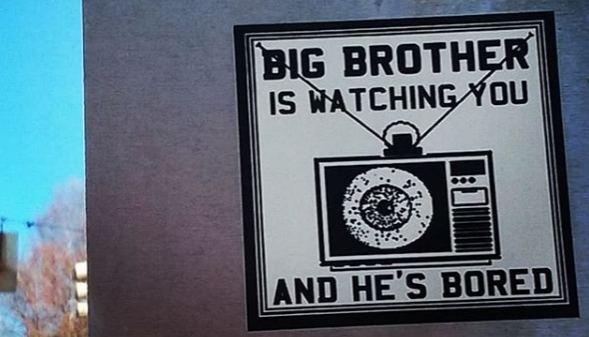The good news about privacy is that eighty-four percent of us are concerned about privacy. The bad news is that we do not know what we mean.
Anne Wells Branscomb
The Great Migration
Last week we witnessed a modern age boycott movement with millions of users replacing Whatsapp with Signal or Telegram in protest against Whatsapp’s privacy policy changes, which people believed would allow data sharing with its parent company, Facebook. A few days later, the media clarified that not only was the update related to something else entirely, but that data sharing with Facebook has been happening since 2016 for a majority of users.
This episode is the perfect illustration of Branscomb’s quote. The public is confused. People feel someone’s taking something from them and using it for profit. Not only is this true, but it’s pretty much the business model of the internet as we know it, and it has been happening for years.
The web: a broken business model?
If we hold this as unacceptable, we need to acknowledge that the whole thing is broken, and we need to start paying to use search engines, maps, social networks, email services, browsers, video streaming platforms, productivity apps and, last but not least, to access media websites, both news and entertainment. I can hear you in the background: what about open source? There are wonderful projects out there, but can we really imagine what the internet would look like today if it wasn’t for the money poured into tech companies by investors? Where would we be if the entire web was donation-based?
Can advertising survive without our data?
So let’s assume for now that the advertising industry will keep financing most of our beloved services. Can’t they survive without our data?
They can – but not as efficiently. Segmenting the population using socio-demographic data and choosing target audiences is not something that was born with digital advertising – it’s what people in marketing and communication have been doing for ages. The difference now is that not only can they reach that target much more effectively, but they can also measure differences in the return of their investment when they fine-tune their audiences. So, in theory, everyone who owns a business can benefit from this.
What are we giving away, and to whom?
Going back to privacy. Where is the line crossed? Think of your browsing history from this morning. You read the news on ABC, went to Amazon, and checked your Gmail inbox. In the first two, you might or might not log into a user account. Even if you don’t, you will see a message asking for your consent to collect browsing information – although this will not include any Personal Identifiable Information (PII), such as your name, phone number or email address. The same isn’t true for your inbox, which necessarily requires login. However, although they own it, Google’s promise is that they do not sell your PII. Note that If you do all of this browsing using Chrome, then Google automatically knows all about your browsing history.
This, by the way, makes Chrome’s third-party cookie ban all the more ironic. All major browsers are banning third-party cookies: bits of information that are created by domains other than the one you are visiting (hence the “third-party” designation) and that are placed on your browser to collect information about your behaviour across websites. This information is usually stored in platforms called DMPs – Data Management Platforms – marketplaces where companies can buy audiences for their ads. The third-party cookie phase out reflects society’s growing concerns about their privacy: when you enter a website and accept cookies, this should mean that that the company behind that particular website may use your data for specific purposes (stated in the consent declaration), rather than having it for sale in undisclosed ad platforms. However, what this means in practice is that segmentation and profiling power will be even more concentrated in the hands of the two giants: Google and Facebook.
And here’s where I come to my conclusion. Yes, it’s annoying to see companies profiting from their knowledge of what we do online, particularly when their ways to inform us and obtain our consent are all but transparent. However none of us seems predisposed to start paying for their services instead. Furthermore, as far as we know, our PII is still protected. What frightens me is not the business model, but the size of these data monopolies, how much power they hold, and how they can use it to influence policy-making to their own advantage – and this may include privacy regulation.
It’s scary that, as citizens, rather than demanding our governments for more regulation and control over competition, taxation and privacy, we just blame company executives or company policy – as if companies were created to safeguard social ethics rather than maximising profit. I accept there is no such thing as a free lunch, but I don’t accept the world to be ruled by a handful of CEOs.


